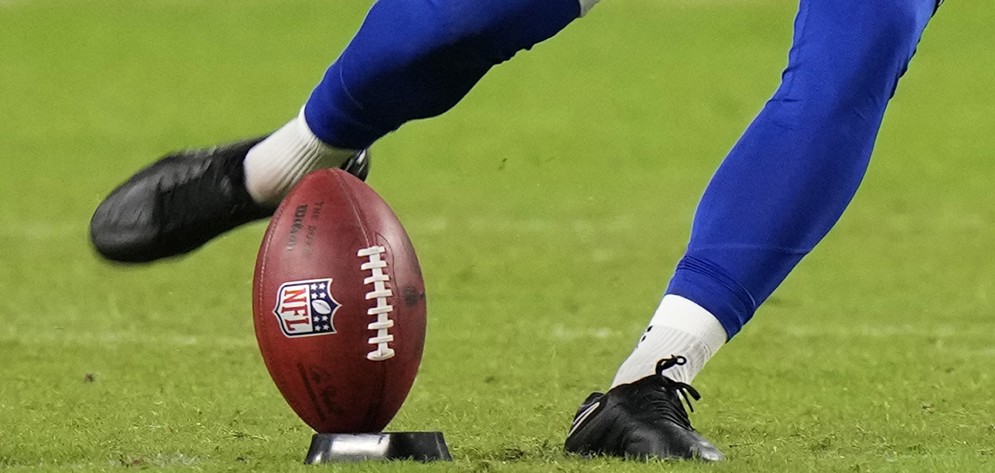The Extra Point What Stats Suggest About the NFL’s New Kickoff
April 3, 2024

The NFL kickoff has evolved in several ways over the past 30 years. Ahead of the 2024 season, NFL clubs have approved major changes to the kickoff rule to increase the return rate and reduce player speed and high-speed collisions.
Here’s a video explaining the new format:
The NFL Football Operations data and analytics team has spent the offseason analyzing the potential impact of the rule. Some of the analysis was pulled from XFL data and its similar kickoff format.
Here are a few things to expect during the 2024 season:
A new strategy is also expected to infiltrate the play — where the kicker should aim his kick.
This chart outlines the field position for the return team on kickoff returns. The locations where kickoffs land are categorized into five groups:
The text on the right gives the average and median field position, along with the percent of time that starting field position is inside the 30-yard line within each category. The 30-yard line is a critical marker for both teams, since that’s where the ball would be placed on kicks that land in the end zone.

The deeper the ball is kicked, the worse field position for the receiving team. Kickoffs returned after landing in the end zone had a median starting field position at the 23-yard line. Returns originating further out from the end zone provided better starting field positions. For example, kicks landing between the 16–20-yard lines had a median starting field position at the 29-yard line.
In most yard-line groups, the average field position is greater than the median. However, this average is skewed by some long kickoff returns. Kickoffs landing between the 1–5-yard lines had a median starting field position at the 26-yard line, but six kickoff returns past midfield skewed the average, bumping it out to the 28.7-yard line.
Why does this matter? When the return team is debating whether to return a kick landing near its end zone, the choice might be impacted by average starting field position, which is more friendly to the return team than the median field position.
Finally, kickers can’t kick the ball too deep. The resulting touchback for kicks in the end zone is the 30-yard line, versus the 25-yard line in 2023.
With the incentives of the new kickoff and this data, kickers are expected to aim their kicks towards the back of the landing zone and force a return. Ideally for the kicking team, this results in tackling the returner short of the 30-yard line.